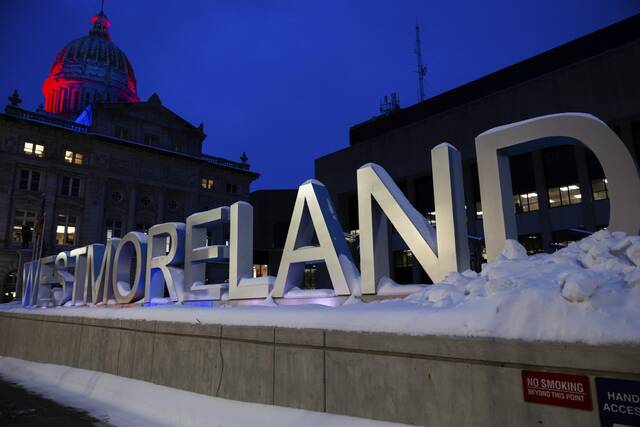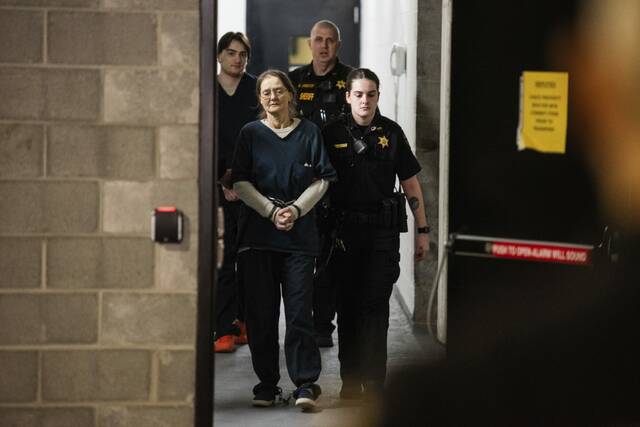Horror master Stephen King, Judy Blume of young readers’ fame and Kurt Vonnegut, he of “Slaughterhouse-Five,” are out.
The three renowned authors — whose works were on the American Library Association’s list of 100 most frequently banned and challenged books from 1990 until 2009 — apparently are no longer so objectionable.
The new decade list, which covers books that were challenged between 2010 and 2019, contains many recognizable titles: “The Bluest Eye” by Toni Morrison (No. 10), “The Kite Runner” by Khaled Hosseini (11), “Hunger Games” by Suzanne Collins (12), “The Perks of Being a Wallflower” by Pittsburgh native Stephen Chbosky (14) and “To Kill a Mockingbird” by Harper Lee (15). The Bible ranked No. 52.
The list increasingly includes more books that address transgendered people and LGBTQ issues, which have been targeted most in more recent years.
In 2019, 8 of the 10 most frequently challenged tomes on the list dealt with such issues. In fact, the top 6 most-targeted books did — led by Alex Gino’s “George” at No. 1, the same position it held in 2018. It has been in the top 5 each year since 2016, the year after it was published.
The banned books update frequently rates at least passing mention at most libraries, if not actual programming focusing on censorship and efforts to ban books. This year, with the pandemic and most libraries still restricted to limited in-person operations, the list hasn’t received the attention it typically gets.
“In a normal year, we would most likely have put up a display for Banned Books Week (which runs through Saturday). However, at this time we currently do not have any displays at the library,” said Jamie Falo, director of the Greensburg Hempfield Area Library. “For a better understanding of banned and challenged books, library staff posted a ‘Banned Books 101’ video created by the America Library Association’s Office for Intellectual Freedom on the library’s Facebook page.”
Neither Falo nor Lisa Dennis, who has been coordinator of Children’s Collections for the Carnegie Library of Pittsburgh for more than two decades, were surprised to see the new titles on the list.
“This is definitely a trend we’ve been seeing over the last few years. One of the reasons we’re seeing it is we’re seeing more LGBTQ titles and there are more of them for both children and teens, so now there are more folks to object to them,” Falo said.
Such books have been making their way to bookshelves for years.
Dennis said that “Jacob’s New Dress,” a new addition at No. 72 on the new decade list, is a book about a boy who happens to love wearing dresses. It includes nothing explicit about his sexuality. She likened it to “William’s Doll,” a 1972 children’s book about a little boy who played with a doll.
Dennis said requests challenging the library’s collections come in waves. And while some deal with sexually explicit adult novels like “Fifty Shades of Grey,” many deal with children’s books.
“We’ll probably get two or three requests one year and then have a year or two where we have none,” she said.
The librarians said J.K. Rowling’s bestselling Harry Potter books, which have been on the list since the first one — “Harry Potter and the Sorcerer’s Stone” — was published in the late 1990s, have been mainstays on the banned books list. The Harry Potter series ranked No. 9 on the 2019 list, though none of the books are on the Top 100 decade list.
The wildly popular bestsellers, which have spawned merchandising deals, movies and a Broadway musical, rub some the wrong way for an emphasis on sorcery and magic.
“Earlier in my career, I recall the Harry Potter series by J.K. Rowling being challenged locally by community members, accusing the author of glorifying magic and witchcraft, which they said could lead children to try to emulate the spells and curses they read about,” Falo said. “However, I do not recall any library or school in the community banning the books from their collections or classrooms.”
Dennis said the Carnegie Library of Pittsburgh has a specific process for considering such challenges. She frequently reminds herself that whether she agrees with those filing objections, such actions come from a good place: people who care about children.
“They can be great conversation starters,” Dennis said.
Nonetheless, librarians have become among society’s most ardent supporters of free speech and the need to respect a diverse array of beliefs.
“Librarians defend everyone’s freedom to read,” Falo said. “Libraries have an obligation to their communities to be neutral providers of free and accessible information for all community members. Because we serve everyone in the community, diverse resources need to be available for all beliefs and values.”








